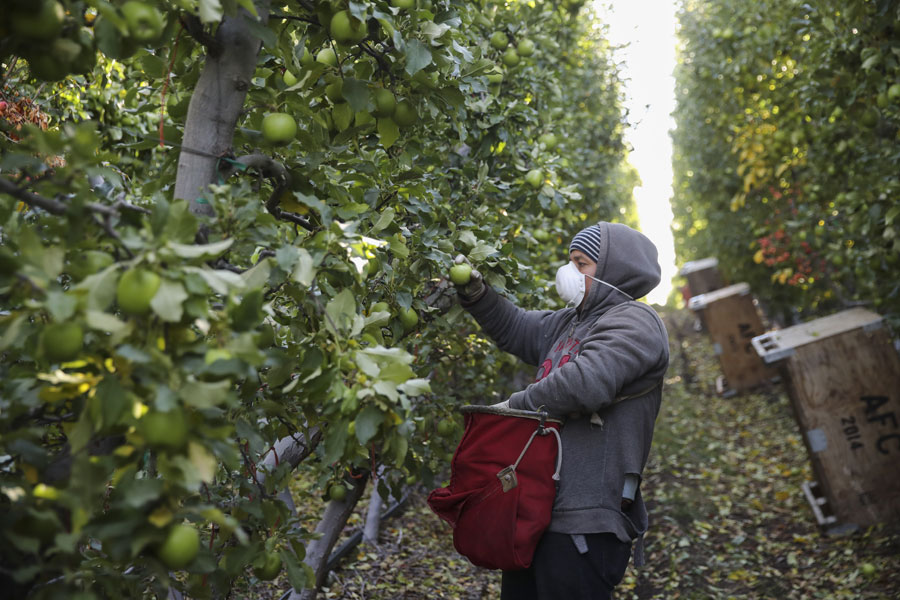More farm imports 'necessary'

Agricultural deficit in first quarter up 12%

Experts said a moderate increase in agricultural imports from around the world is essential to meet rising domestic demand in China.
The country imported $32 billion in agricultural products in the first quarter of this year, up by 10.4 percent year-on-year, according to the Ministry of Agriculture and Rural Affairs.
The value of China's total agricultural trade reached $50 billion in the first three months, an increase of 10 percent year-on-year, the ministry said this week. The agricultural trade deficit in the first quarter amounted to $14.1 billion, up by 12 percent year-on-year.
"Population growth in China and upgraded demand for consumption will lead to sustained increase in domestic demand for agricultural products," said Song Juguo, deputy director of the ministry's Agricultural Trade Promotion Center.
"Meanwhile, agricultural production in China faces increasing constraints including limited resources and environmental pollution. It is necessary to expand agricultural imports," he said.
China is now the world's biggest importer of agricultural products, with its total value accounting for 10 percent of the global trade of agricultural products, the ministry said.
The country's trade deficit in agricultural products has been increasing since 2004, and it reached $40 to $50 billion every year in recent years, the ministry said. Last year, China imported agricultural products worth $111.6 billion, an increase of 16 percent year-on-year. Major imports included grains, cotton, edible oil, sugar, meat and dairy products.
While it is necessary to expand such imports to meet increasing demand, Song also said the increase should not be too fast.
"Agriculture is a matter of national food security and the livelihood of hundreds of millions of farmers in China," he said. "Imports should be balanced with the pace of China's industrialization and urbanization."
Some areas should be put on the priority list for increased imports, Song said, such as high quality seeds and sprouts, as well as pesticides and fertilizers, to increase yields and reduce pollution caused by production to promote green agricultural development.
The importation of high-end farm machinery and equipment should be encouraged to reduce labor costs and improve efficiency, Song said.
Imports of agricultural products that have seen a rapid rise in demand, like high-quality aquatic products and exotic fruits and nuts, should also be increased, he added.
Li Wei, an associate professor of international relations at Renmin University of China, said the United States is the biggest exporter of agricultural products in the world, and China-US agricultural trade has great potential to increase, especially in the trade of meat.
China is the net importer in China-US agricultural trade due to differences in resources between the two countries and China's increasing demand, he said.
"China lags behind the US in efficiency in much agricultural production," he said. "A proper increase in importation of agricultural products from the US is in the interest of China."
Song also suggested China diversify its sources, including countries involved in the Belt and Road Initiative.




































